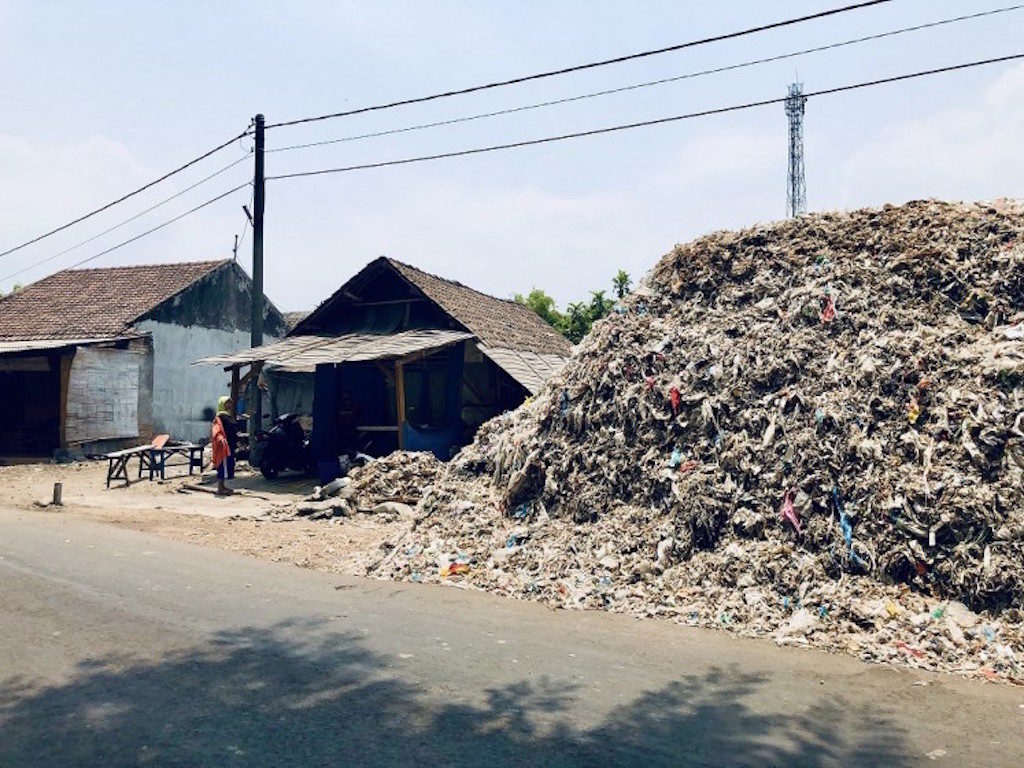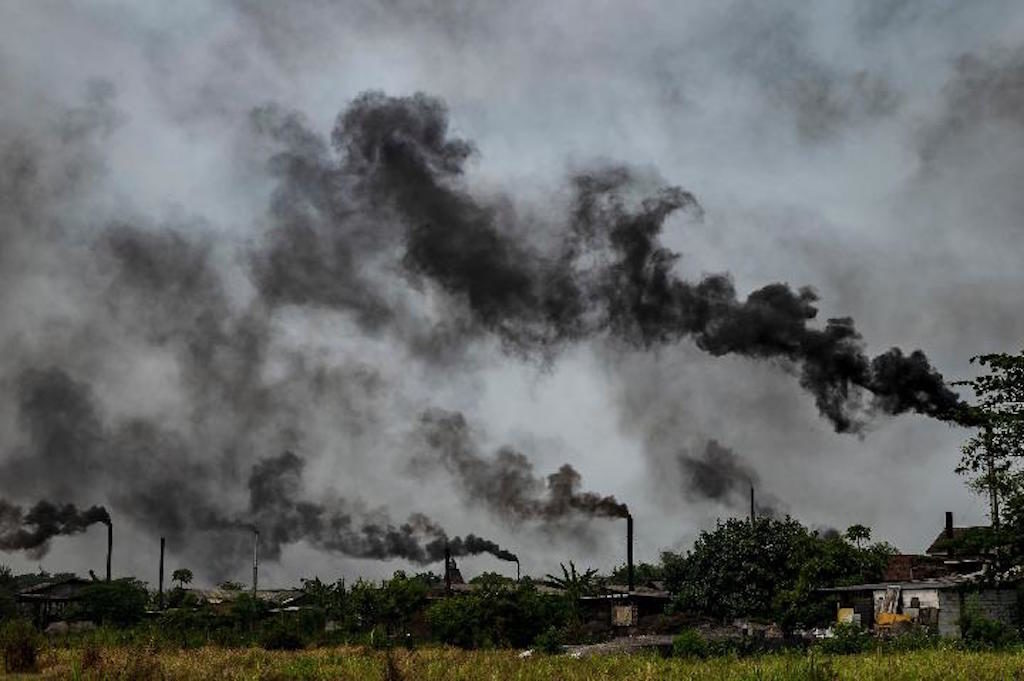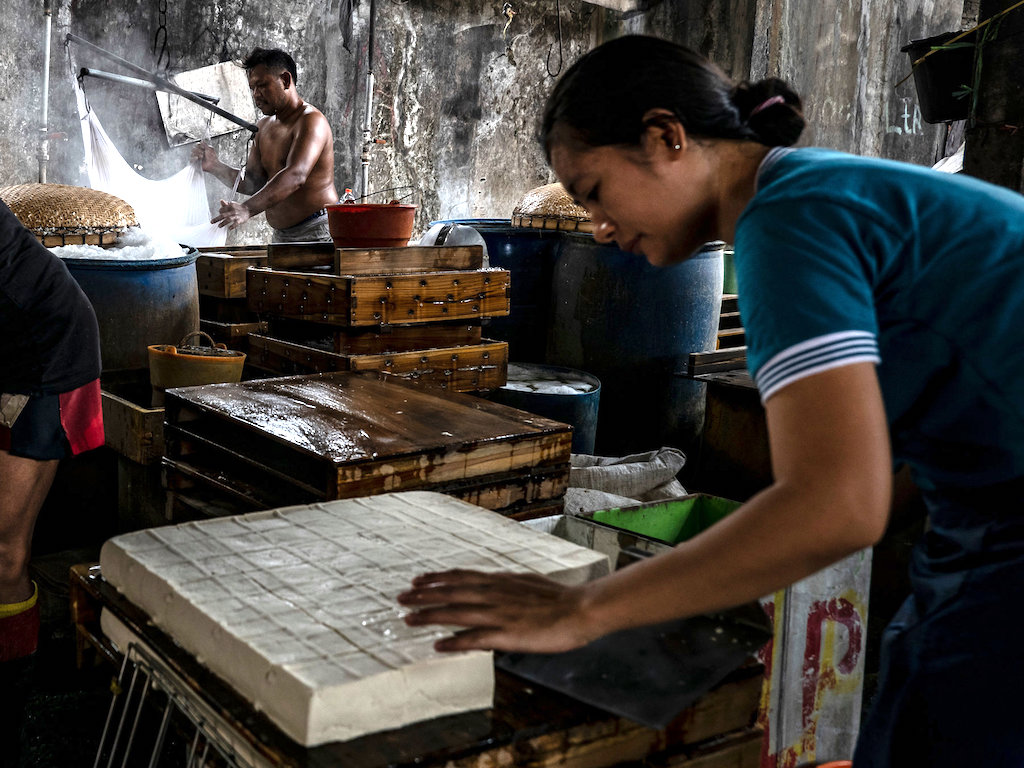4 Mins Read
While countries around the world are dumping their contaminated waste into developing nations in Southeast Asia with little if any ramifications, a community in the eastern coast off Indonesia’s Java island is suffering. Burning the low-grade plastic and paper waste that Americans have thrown into recycling bins, commercial kitchens in Tropodo are now using it as the fuel boilers to process tofu. This has had far-reaching and long-lasting consequences: the population is not only subject to breathing in dioxin released from incineration, a toxic and harmful substance linked to serious health complications, but these toxins are also accumulated in the soil, which enters back into the food chain. These findings, exposed by a report authored by local and international NGOs, highlights the severity of global environmental injustices that have been exacerbated by local government neglect and mismanagement.
Since last year, imported waste is ending up on the shores of Southeast Asian countries at an astonishing rate as the world continues to take advantage of the region’s policy gaps. After China enacted an outright ban on plastic waste imports in 2018, intermediaries and private corporations responsible for handling waste quickly used Vietnam, Indonesia, Thailand, Malaysia and the Philippines as their dumping ground, flooding their coastlines with illegal, contaminated, low-grade waste that cannot be recycled into new materials. Despite the fact that the Basel Convention was updated in 2018 to require countries to receive consent before sending off plastic waste trades, mass environmental injustices are still occuring.
Although the Philippines famously sent contaminated shipments of waste back to Canada after a high-profile diplomatic spat, and Malaysia have also ordered the return of 450 tonnes of mislabelled waste to its originating countries, these public moves have done little to deter the non-stop flow of waste from arriving. According to the latest Ipsos report, the per capita plastic waste in Vietnam has increased by 10 fold, much of it driven by imported rubbish.

In Tropodo, a village with a population of 5000 in the eastern Java island of Indonesia, the community is also suffering from the mounds of contaminated trash imported by foreign companies. A recent study conducted by four environmental groups – Indonesia-based Ecoton and Nexus3 Foundation, Prague-based Arnika and the International Pollutants Elimination Network (IPEN) – has found high levels of toxic Dioxin in the soil in Tropodo, which has then bioaccumulated in the eggs of chickens. Dioxin is a pollutant known to cause cancer, birth defects and Parkinson’s disease.
According to the report, these high levels of dioxin are a consequence of the massive amounts of contaminated and unwanted waste imports, which travel 20 miles by road from Bangun to Tropodo and left outside tofu kitchens. These scraps, which companies accept for cheap, are used fuel furnaces used to process tofu in at least 30 commercial kitchens in the village, spewing out smoke and ash. It is used because it is more cost-efficient than burning wood, but in expense of people.
Testing eggs for contamination as a proxy for the quality of soil – as toxins easily accumulate in eggs as chickens sample soil for forage – scientists found that just eating one of these eggs would exceed European Food Safety Authority’s daily safety standards by 70-fold.
“They start the burning early in the morning and go until the evening. It happens everyday and the smoke is always in the air. For me, it’s difficult to breathe,” said Mr. Karnawi in an interview with The New York Times.

When pointing fingers, environmental experts and organisations agree that this is the end-product of government neglect and gross misconduct of waste management, which has left local communities to bear the brunt of the injustices, from severe health impacts from air pollution to lasting environmental damage due to contamination. In July 2019, the Environment Ministry’s director for waste management Rosa Vivien Ratnawati recognised the detrimental effects of trash burning, but has made no moves to curb the practice amongst companies.
“These stark findings….should move policymakers to ban plastic waste combustion, address environmental contamination, and rigorously control imports,” commented the report’s co-author Lee Bell from IPEN.
Beyond Tropodo, the open burning of plastic and paper trash is a widespread practice throughout Indonesia. Despite being illegal by law, it lacks any monitoring and sanctioning to ensure that trash burning bans are enforced.
Lead image courtesy of Nexus3 / IPEN.




